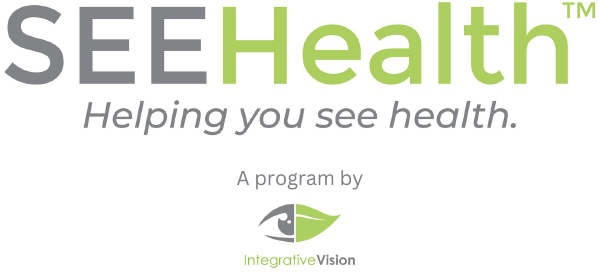Neda Gioia, OD, an independent optometry practice owner and student in the OWNS Certified Nutritionist Specialist (CNS®) program, shares her experiences going through the CNS® program, and making nutrition and health a major focus for the last five years of her life.
CAN YOU EXPLAIN HOW NUTRITION AND WELLNESS BECAME SO IMPORTANT FOR YOU IN GENERAL AND HOW IT’S INTERSECTED WITH YOUR OPTOMETRIC LIFE?
I always thought of myself as healthy, but I was exposed to something that was very unhealthy, which devolved into a neurological condition. That led me to seek other avenues of trying to treat myself. So I was ready to start implementing nutrition and functional medicine into my own life. And that drive surpassed the desire of just trying to learn something for knowledge; it became personal.
As an optometrist who deals with primary care, I thought it would be a loss for my patients if I didn’t expose them to what I’ve learned. That’s when I started researching how I could bring the areas of wellness, nutrition and functional medicine into optometry vs. having it be a completely separate entity.
YOU ARE WORKING YOUR WAY THROUGH THE OWNS CNS® PROGRAM CLINICAL HOURS UNDER THE SUPERVISION OF ANOTHER CNS® MENTOR. WHAT HAS YOUR EXPERIENCE BEEN LIKE WITH THE CNS PROGRAM? DID YOU LEARN ANYTHING THAT SURPRISED YOU, GOING THROUGH THE PROGRAM?
My experience with the CNS® program has been wonderful in the sense that it’s so organized, and the courses have been so enlightening and so in-depth. The program really put me on a different level of understanding about the core concepts of nutrition.
There were surprises throughout the program. My biggest surprise was with the gut microbiome. Many companies are trying to tap into research findings about the microbiome to treat a lot of chronic health conditions, and even eye conditions are being studied.
HOW DO YOU THINK THE CNS® PROGRAM WILL BENEFIT YOUR PATIENTS AND PRACTICE INTO THE FUTURE?
Any patient who walks in the door of an optometry office where the doctor has exposure to nutritional education such as from the CNS® program is in better standing. That patient’s likely not getting this information anywhere else in their medical consultations. Therefore, we’re going to stand out as an impactful subspecialty of the medical world that can introduce these patients to a different way of treating their health concerns. This is medicine of the future, and we have an opportunity to help lead.
YOU ALSO COMPLETED THE FIRST MODULE FOR THE INSTITUTE FOR FUNCTIONAL MEDICINE RECENTLY. WHAT IS DRIVING YOU TO SEEK ADDITIONAL CREDENTIAL OPPORTUNITIES IN THE AREAS OF NUTRITION AND FUNCTIONAL MEDICINE RELATIVE TO YOUR OPTOMETRIC PRACTICE?
When I was investigating different programs for nutrition, The Institute of Functional Medicine always popped up. The program really gears toward medical doctors. And when I first applied, the admissions staff rejected me because I was an optometrist. I wrote them a long letter making my case for why I should be admitted. Nothing happened, and a year later I found out that the Ocular Wellness & Nutrition Society had gotten them to accept qualifying optometrists. I reapplied and was accepted, so I finished the main module on implementation. That is why I decided to go even further—to learn how to implement functional medicine in my practice.
YOU HAVE NOTED THE UNIQUE NATURE OF YOUR OFFICE. CAN YOU EXPLAIN WHAT YOU MEAN, RELATIVE TO THE DISCIPLINE OF HUMAN NUTRITION AND FUNCTIONAL MEDICINE IN OPTOMETRIC PRACTICE?
We currently are in a launch phase. I always wanted to have an optometry practice with a nutrition program weaved in. And that’s what I decided to do with this office—not have nutrition just as a side program, but actually as a highlight. In addition to protocols for patients who want to go through my nutrition program, I have laboratories that I’m working with to do special diagnostic tests, and I implemented an antioxidant tester.
I also have a standby coach to help me complete the programs for patients. If you want to do a full program, it takes a lot of time between the lab work and creating protocols for the patient, which you have to keep adjusting. We’re going to have all the primary care services that a primary care optometry office has, but for the patients who have chronic conditions—which unfortunately now is more the norm—they can see that we offer wellness advice and would like to help them with their issues. If they are comfortable with that, maybe they’ll want to seek more help in the world of nutrition.
My other motivation for having a dual functioning practice model was to figure out how to put it front and center as a business model. With the time that you spend to do all of this, colleagues are going to ask why, and if you’re not able to show them how to incorporate nutrition into the practice, they will have a hard time deciding to go forward with a similar program. That’s why I want to prove the model. I would like to create a way to help counsel other health care providers on how to do it in the future, too.
DO YOU THINK THAT MORE PRACTICES AROUND THE COUNTRY WILL BE SEEKING TO BECOME CREDENTIALED IN THE AREAS OF NUTRITION AND FUNCTIONAL MEDICINE RELATIVE TO YOUR OPTOMETRIC PRACTICE IN THE FUTURE?
Absolutely. Today’s patients are asking more questions. They want to know, ‘What other options do I have? What can I do?’ And they’re used to answers like, ‘Well, it is what it is.’ But that’s not how we should be treating our patients. We should empower them, and we should walk side by side with them to try to find answers, or help them in other avenues that intersect. Younger providers are also asking questions. They are much more exposed to the concept of health change and wellness; that philosophy is now out there in the media. I think, going forward, they want change, too. And the CNS® program provides that change.



